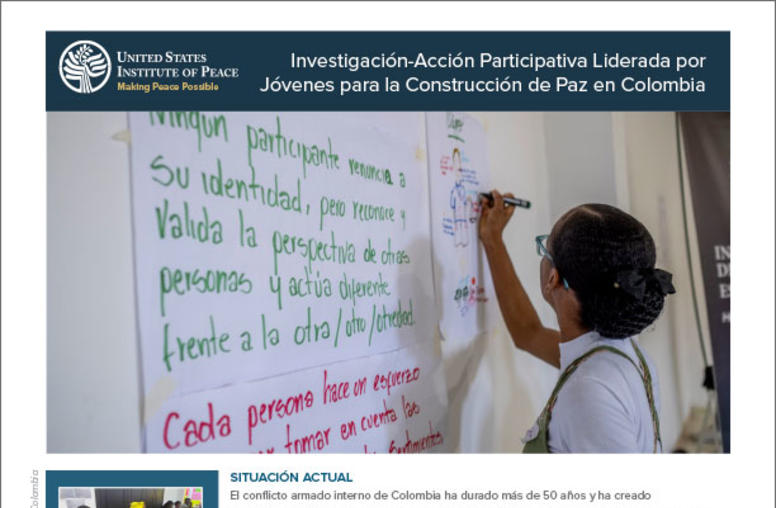Female Soldiers and DDR: Sierra Leone, Nepal, and Colombia
How are the roles of "soldier" and "victim" defined by post-conflict programs? Most disarmament, demobilization, and reintegration (DDR) programs are limited in the ways in which issues specific to female combatants are addressed. At this public event panelists examined the particular challenges faced by female ex-combatants in post-conflict environments, and ways in which reintegration agencies and post-conflict programs can integrate gender into their work.
How are the roles of "soldier" and "victim" defined by post-conflict programs? Most disarmament, demobilization, and reintegration (DDR) programs are limited in the ways in which issues specific to female combatants are addressed. Even the titles given to female soldiers, such as "females associated with the war," "dependents," or "camp followers" reveal the reluctance of reintegration agencies to identify females who participated in war as soldiers. Why during post-conflict are those women—who once played highly securitized roles, such as soldiers -- de-emphasized in post-conflict policymaking?
At this event, Dr. Megan Mackenzie, a specialist on female soldiers in Sierra Leone, explored how the reintegration process for men has been securitized, or emphasized, as an essential element of the transition from war to peace. Panelists examined particular challenges faced by female ex-combatants in post-conflict environments and ways in which reintegration agencies and post-conflict programs can integrate gender into their work.
Speakers:
- Megan Mackenzie
Lecturer, Department of Political Science and International Relations
Victoria University of Wellington, New Zealand - Louis-Alexandre Berg, Discussant
Jennings-Randolph Peace Scholar
U.S. Institute of Peace - Colette Rausch, Discussant
Director, Rule of Law Program
U.S. Institute of Peace - Virginia Bouvier, Discussant
Sr. Program Officer, Colombia Program
U.S. Institute of Peace - Kathleen Kuehnast, Moderator
Director, Gender and Peacebuilding Center
U.S. Institute of Peace
Explore Further:
- Learn more about USIP's Gender and Peacebuilding Center
- View Dr. MacKenzie's presentation
- Access Dr. MacKenzie's article "Securitization and Desecuritization- Female Soldiers and the Reconstruction of Women in Post-Conflict Sierra Leone" from Taylor and Francis Group


